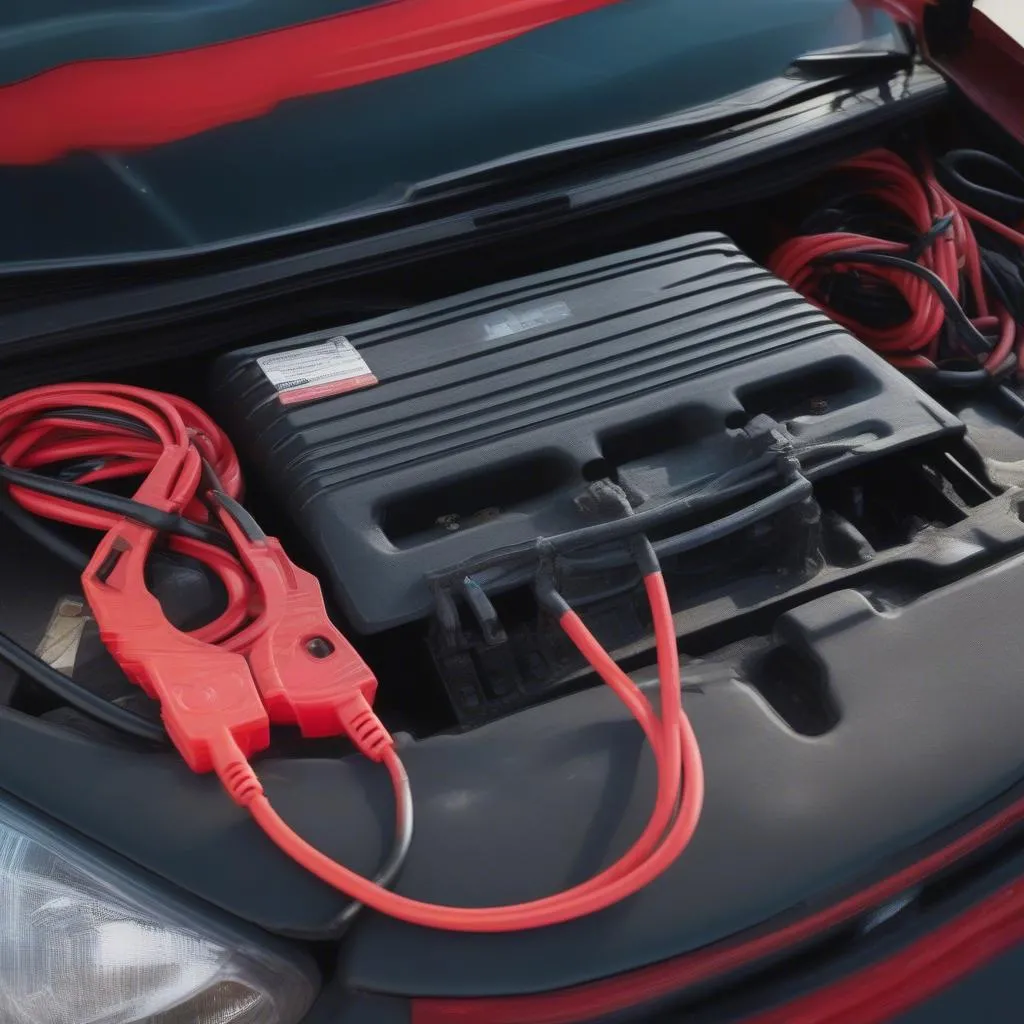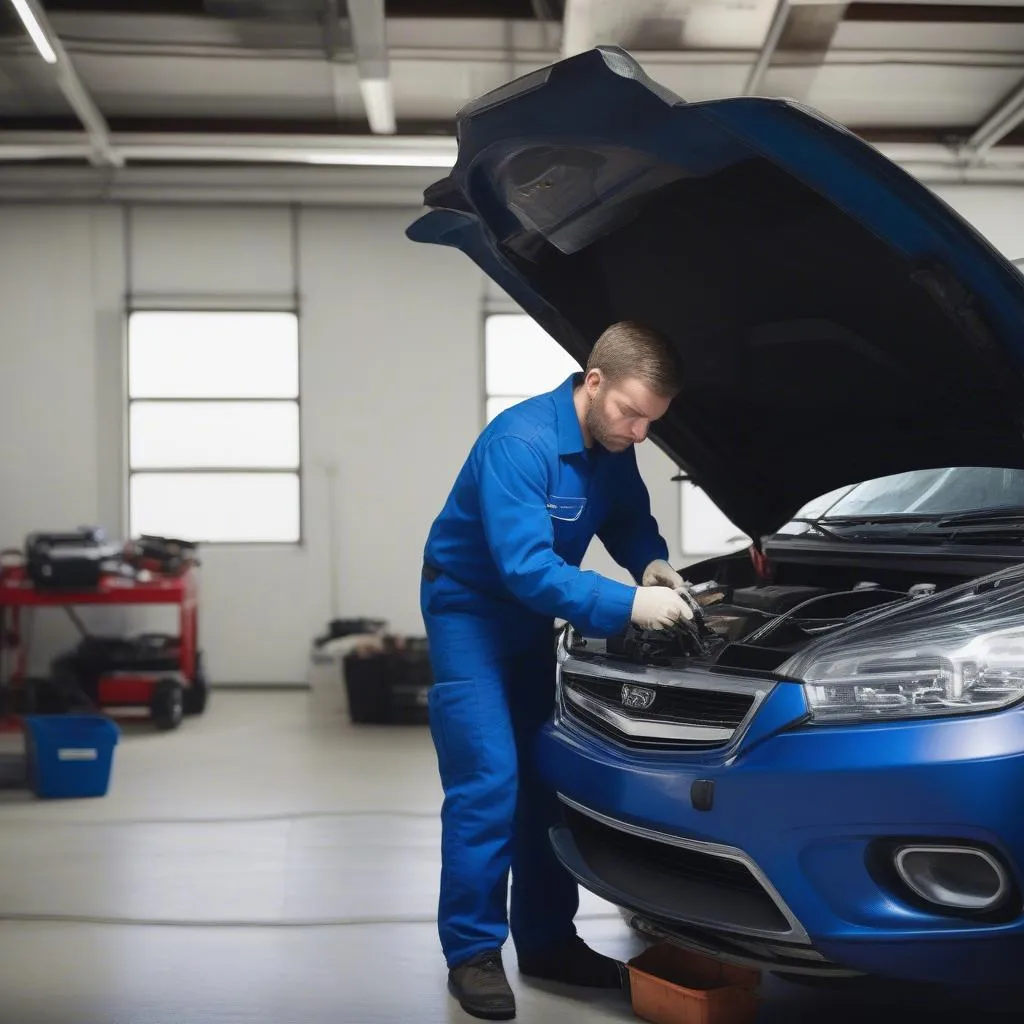“Ugh, not again!” You turn the key in the ignition, but all you hear is a disheartening click. Your trusty Honda Accord, usually a champion of reliability, has decided to throw a wrench (pun intended) in your morning commute. Sound familiar? We’ve all been there – stranded with a car that refuses to start, wondering what could possibly be wrong.
Don’t worry, you’re not alone. “Why won’t my car start” is a question that echoes through garages and online forums worldwide. Let’s break down this common car problem, explore the possible culprits, and empower you to get back on the road.
What We Mean When We Say “My Car Won’t Start”
Before we dive into solutions, it’s essential to clarify what we mean by “car won’t start.” Are you experiencing:
- A clicking sound but no engine turnover? This often points to a dead or dying battery, loose connections, or a faulty starter motor.
- The engine cranking but not starting? Think fuel system issues, ignition problems, or even something as simple as a bad sensor.
- Complete silence when you turn the key? This could indicate a serious electrical problem, a faulty ignition switch, or a problem with your car’s immobilizer system.
See, even the way your car doesn’t start tells a story!
Common Culprits: The Usual Suspects
Let’s investigate some of the most common reasons your car might refuse to cooperate:
1. Battery Blues
Your car battery is the lifeblood of your electrical system. A weak or dead battery is the number one reason cars fail to start. Cold weather, old age, or leaving your headlights on can all drain your battery’s power.
How to check:
- Look for dim headlights or interior lights.
- Try jump-starting your car. If it starts, your battery likely needs replacing.
Expert Tip: “A car battery’s lifespan is typically 3-5 years,” says automotive expert, Dr. Emily Carter, author of “The Complete Guide to Car Maintenance.” “Regularly checking your battery’s health can save you from unexpected breakdowns.”
2. Starter Motor Malfunctions
The starter motor is responsible for turning the engine over and getting it started. A failing starter motor might produce a clicking sound or fail to engage at all.
How to check:
- Listen for a clicking sound when you turn the key.
- If you suspect a starter motor problem, it’s best to consult a mechanic.
3. Fuel System Fiascos
Without fuel, your engine is going nowhere fast. A clogged fuel filter, a malfunctioning fuel pump, or even running out of gas can prevent your car from starting.
How to check:
- Listen for the fuel pump engaging when you turn the key to the “on” position (you should hear a quiet humming sound).
- Check your fuel gauge – it might seem obvious, but we’ve all been there!
4. Ignition System Issues
The ignition system is responsible for providing the spark that ignites the fuel in your engine. A faulty ignition switch, a bad ignition coil, or worn-out spark plugs can all prevent your car from starting.
How to check:
- If you have a gasoline engine, check for sparks by removing a spark plug, reconnecting it to the wire, grounding it to a metal part of the engine, and having a helper crank the engine while you look for a blue spark.
- Due to the complexity of the ignition system, it’s often best to consult a mechanic for diagnosis and repair.
 Car Battery Jumpstart
Car Battery Jumpstart
Real-Life Scenarios: From Los Angeles to London
Let’s put this into perspective with a couple of common scenarios:
Scenario 1: Imagine you’re cruising down Sunset Boulevard in your classic Ford Mustang. Suddenly, your engine sputters and dies. You try to restart it, but all you hear is a rapid clicking. The culprit? Most likely a dead battery, possibly drained by the hot California sun.
Scenario 2: You’re late for a meeting in London, rushing to your sleek Audi A4 parked on a busy street. You turn the key, but nothing happens – complete silence. The culprit? This could be a faulty ignition switch, a common problem in some Audi models.
Troubleshooting Tips and Tricks
- Check the Obvious: Before panicking, ensure the car is in “Park” or “Neutral,” and the parking brake is engaged.
- Consult Your Owner’s Manual: Your car’s manual is a treasure trove of information, including troubleshooting tips specific to your make and model.
- Don’t Be Afraid to Ask for Help: If you’re unsure, don’t hesitate to call a tow truck or a trusted mechanic.
Similar Questions We Often Hear
Here are some other common questions related to car starting problems:
- “Why won’t my car crank?” This usually points to battery, starter, or electrical issues. For more information on this specific problem, check out our dedicated article on car cranking issues: [link to https://diagxcar.com/car-wont-crank-lights-come-on/]
- “Why do my car lights come on but it won’t start?” This often indicates a problem with the starter motor or ignition system. Learn more about this issue here: [link to https://diagxcar.com/lights-coming-on-car-not-starting/].
- “Why does my car start sometimes and sometimes not?” This can be a sign of a failing component like a crankshaft position sensor or a loose connection. Read our article on intermittent starting problems for a deeper dive: [link to https://diagxcar.com/car-starts-sometimes-and-sometimes-not/].
 Car Engine Inspection
Car Engine Inspection
Get Back on Track with DiagXCar
A car that won’t start can be frustrating, but with a little knowledge and troubleshooting, you can often pinpoint the culprit. Remember, your car is trying to communicate with you. Paying attention to the symptoms can help you diagnose the problem and seek the right solution.
And if you’re ever in doubt, our team of automotive experts at DiagXCar is here to help. We specialize in dealer-level diagnostic tools for European cars, and our support team is available 24/7 to assist you with any car-related questions.
Need help with your car diagnostics? Contact us on WhatsApp at +84767531508 – we’re here to get you back on the road!


